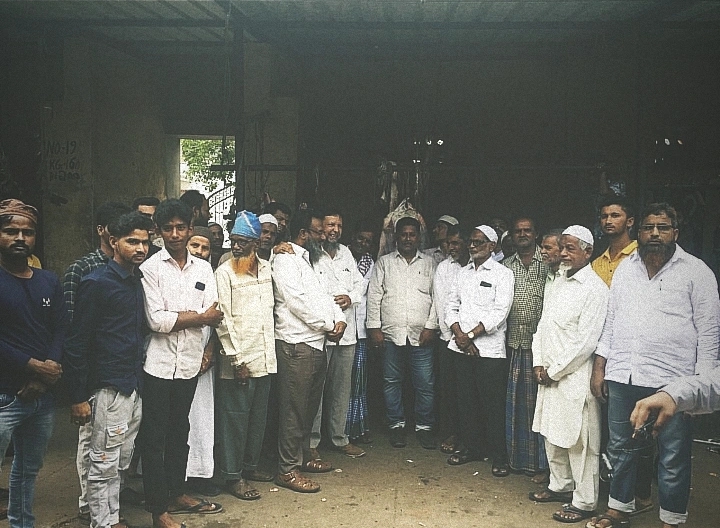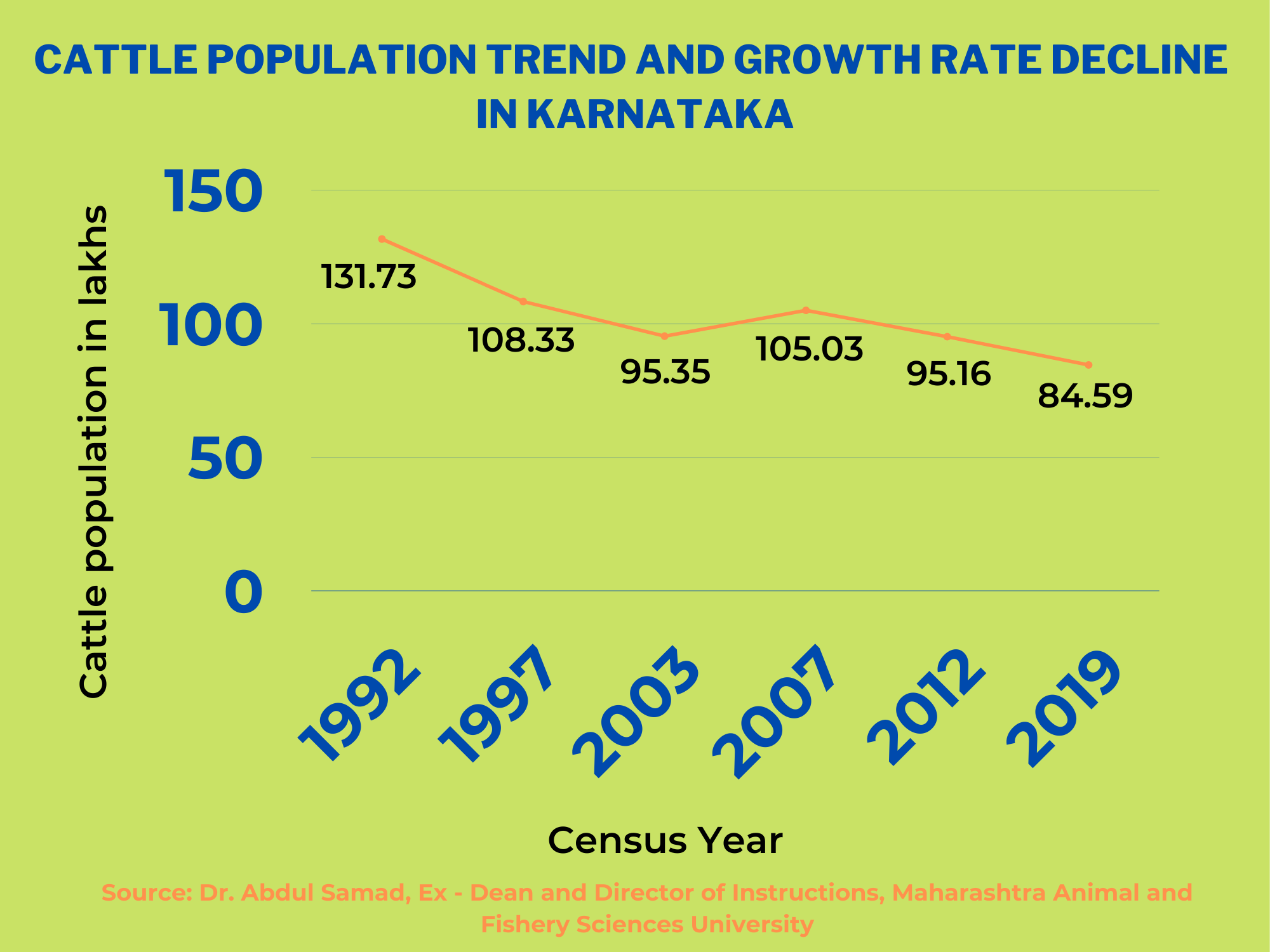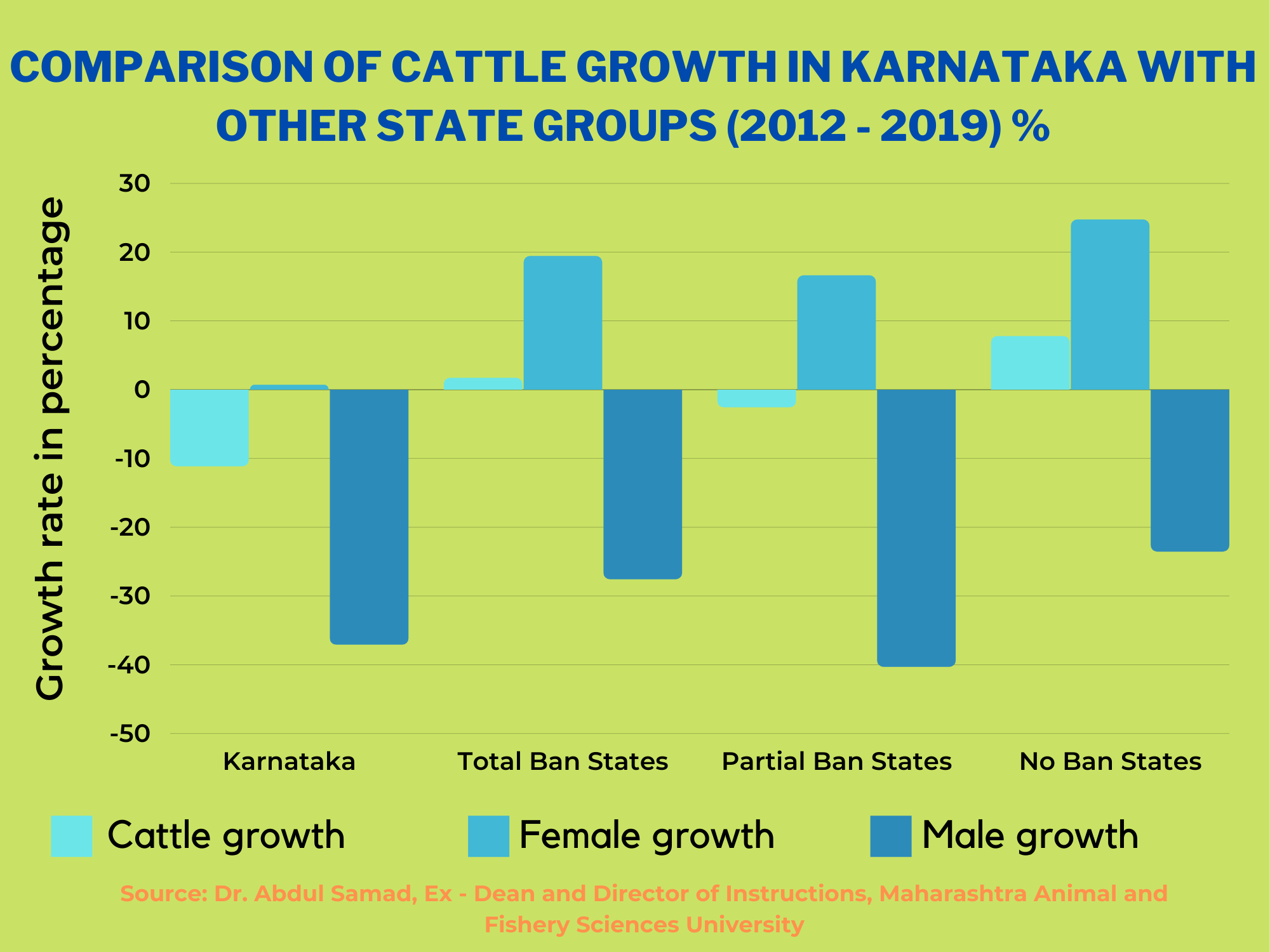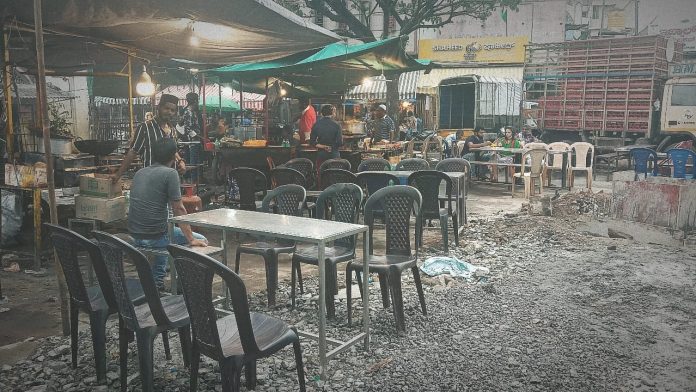The introduction of the controversial new anti-cow slaughter bill in Karnataka in December 2020 has badly impacted the cattle traders and meat sellers of the state. A TCN Ground Report looks at the multiple ways the new bill is adversely impacting the livelihood of those associated with cattle business.
Shalini S | TwoCircles.net
BANGALORE – Nearly a year after the Karnataka government passed the controversial The Karnataka Prevention of Slaughter and Preservation of Cattle Bill, 2020, the butchers and cattle traders from Bangalore are in distress saying the “new bill has been a death-knell for their trade.” The new bill calls for a blanket ban on cattle slaughter, restricting beef-eating and sale in the south-Indian state.
After being in effect for nearly a year, people associated with the cattle trade told TwoCircles.net that the new bill has adversely impacted their business and the livelihood of their children.
Pertinently, the passing of the new bill in December 2020 by the Bharatiya Janata Party (BJP) government saw uproar in the state’s Assembly, with Opposition members tearing copies of the Bill and protesting in the Well of the House. The BJP members, however, were in support of the new bill and raised slogans of “Gomata ki Jai” in the house.
At Bangalore’s Shivaji Nagar beef market, which accounts for the significant production of beef in the state, people associated with the business are distraught.
The Shivaji Nagar beef market used to thrive before the bill and during pre-pandemic days. At present, out of 77 beef stalls in the market, hardly 9 to 10 shops are open on all days. The sales have gone down with customers uncertain of buying buffalo meat. Unlike the initial Prevention of Cow Slaughter and Cattle Preservation Rules, 1967, which allowed slaughtering of cattle with certification from competent authorities, the new bill states it is illegal to slaughter all cattle barring buffaloes aged over 13 years.
In an aisle opposite Indira Canteen in Shivaji Nagar beef market, an aged butcher Khasim Jaanu stood supporting himself on a wall. President of All India Jamiat-ul-Quresh, Karnataka Khasim Shoiab-ur-Rahaman Qureshi (58), asked Jaanu to take care of his health. Turning to this reporter, Khasim Shoiab said, “Jaanu is my distant relative. He is 85-years-old, and his children have abandoned him. Back in the days, he used to mince 100 kg of beef in the morning and evening just with his bare hands.”
The old butcher Jaanu used to deliver minced meat to the Biological Sciences Centre in Bangalore for the researchers and scientists to procure and experiment with vaccination and antidotes against diseases like tuberculosis and diabetes. “We used to send it to the Centre for vaccine purposes but it stopped after Maneka Gandhi.”
The practise came to an end after BJP leader Maneka Gandhi was appointed head of the committee called CPCSEA (Committee for the Purpose of Control and Supervision of Experiments on Animals) in 1998. The body was formed under the Prevention of Cruelty of Animals Act, 1960. The butchers from Shivaji Nagar said the “rules of CPCSEA were stringent and it had a drastic economic impact on the cattle business.”
Loss of livelihood
Shoiab-ur-Rahaman Qureshi belongs to the Qureshi clan. Qureshi’s are a sub-group among the Indian Muslim population of India. The Qureshi community across India is engaged in the meat business and fall under the category of Pasmanda (marginalized) Muslims. In Bangalore, the community has been directly impacted by the new anti-cow slaughter bill.
Shoaib Qureshi said that they filed a PIL (Public Interest Litigation) before the Bangalore High Court asking the Court to “allow them to stick to the previous bill, where butchers can slaughter cattle after seeking permission from the competent authority.” The previous bill Prevention of Cow Slaughter and Cattle Prevention Act of 1964, provided for the slaughtering of animals (bull, bullock, buffalo except for cow) above the age of 12 years or the ones that are incapacitated for breeding or have a deformity.
“We filed public interest litigation (PIL) along with representatives from farmers and Dalit community against the bill six months ago. The court still hasn’t given a date for the hearing,” Shoaib Qureshi told TwoCircles.net.
Shoaib Qureshi’s eldest son Khasim Shoaib said that the new bill has left them with fewer options in conducting business. “An alternative arrangement for us is to procure beef from no-ban states like Tamil Nadu, Kerala and Andhra Pradesh,” Khasim said.
Even then, he added, “in our new trade license, the word beef is replaced with buffalo meat. It creates confusion in sales, possession and consumption of beef whereas the bill only restricts the slaughtering of cattle.”
Khasim said that following the ban only 50% of the slaughterhouses and retail shops in Bangalore are open. “Many have lost their livelihood,” he said.

Although left with no option but to procure beef from other states, this too comes at a cost.
Khasim Najeeb, a butcher from the market, told TwoCircles.net that “procuring beef from other states is quite expensive.”
“We need to cover travel costs, transportation of meat and pay off the butcher from that particular state. We make no profit that way. This business involves a lot of risks. Amidst the ongoing Covid-19 pandemic, the passing of this bill has created panic in our community,” Khasim Najeeb said.
The community members said that the new anti-cow slaughter bill has a direct impact on the livelihood of their children, who are reluctant now to take up their traditional business. After the bill came into effect, the youngsters from the community have been forced to opt out of their family business and find jobs in mainstream informal sectors.
A case in point is of twenty-four-year-old Habeeb-ur-Rehman, who has completed BBA and now is finding it hard to continue with the cattle business. “I feel useless now. I want to make a living but there is no opportunity, no money or no savings. Whatever we earn is spent on our everyday expenses. At least, I completed my graduation but my younger brothers had to give up their studies. The business has stopped abruptly. It hurts a lot,” he told TwoCircles.net.
Not long ago, Muhammad Bilal (20) and Faeq Choudhary (19) were pursuing a college degree. Today, they work as butchers in Shivaji Nagar. The duo had to drop out of their college due to financial constraints caused by the declining meat business following the passing of the new bill.
Unlike Habeeb, who wants to be in the family business, they don’t have that option. “We are the elder siblings. We have to work to send our younger siblings to school,” the duo said.
Decline in cattle growth
Even with rampant cow vigilantism and anti-slaughter bills in place, states in India with total or partial beef bans have shown a decline in cattle growth. The data, accessed by TwoCircles.net, shows a drastic decline in the growth rate of cattle in Karnataka compared to the no-ban states. It is ironic that when the Karnataka government’s justification for the new bill is that “it will be instrumental in stopping the decline,” yet the cattle population has seen a constant diminution.
Dr Abdul Samad, Ex-Dean and Director of Instructions, Maharashtra Animal and Fishery Science University is currently working on a book on the impacts of the anti-slaughter bill on the growth of cattle population in India. He carried out the analysis of cattle population trends in Karnataka from the Livestock Census and several Right to Information (RTI) requests that he filed with the Ministry of Fisheries, Animal Husbandry and Dairying.
Talking to TwoCircles.net, Dr Samad insists that the issue cannot be seen on communal lines alone “since it is a central issue of farmers too.”

“The resale values of their non-productive cattle are null, resulting in huge economic loss for them,” Dr Samad said.
Farmers across the world maintain a constant herd population, Dr Samad said, adding, “They legally cull non-productive cattle or sell it to their complementary meat industry.”
Farmers in India follow the same model, which has been badly impacted by the new bill. “Without legal culling or resale value, the growth of cattle will be exponential and the farmers will never be able to tend to all the cattle if the herd size is going to keep growing. A farmer should have land, enough fodder and water for it,” he said.
For this reason, Dr Samad said that there is an increase in the number of stray cattle in the absence of resale value, and the ownership of cattle among the farmers has reduced too.
Taking a dig at the unscientific claims made by Hindutva ideologues including National BJP spokesperson Sambit Patra, that “cow dung is costlier than Kohinoor diamond” and “cow urine cures Covid-19,” Dr Samad said, “Even if it is so, why don’t the state-run cattle farms tend to non-productive cows for their dung and urine. Why do they expect the suffering farmers to do it and not cull or trade the cattle?”
The growth rate of bullocks (male cattle) is also declining in every state in India, whether the bill is implemented or not. “It is due to the mechanization of agrarian business and artificial insemination services. The bullocks will be competing with the milking cow, and the farmers will legally cull non-productive bullocks. But the government believes that the farmers need more bullock power, such claims are made without proper research,” Dr Samad reasons.

Dr Samad believes that the Karnataka government passed the bill in haste when there is a shortage of infrastructural facilities and finance to maintain the non-productive cattle in its gaushalas (cow-shelter).
“They are not able to provide food to the existing cattle in the first place,” Suhaib said.
The opposition leader and former Chief Minister of the state, Siddaramaiah, had raised the same arguments when the bill was passed in the Karnataka legislative assembly.
The farmers of Karnataka maintain that cattle are their huge investment and they sell the cattle during important occasions like marriage and education for their children. “But it is incapacitated by the new bill,” they rued.
Denial of ‘Right to Food’
Dr Sylvia Karpagam, a public health doctor and researcher, and a working member of the Right to Food and Right to Health Campaign, is of the opinion that the primary concern of the farmers is that they should be able to sell their unproductive cattle so that they can procure other cattle.
Dr Sylvia and other researchers are putting together a report that talks about a prime circle of people such as farmers, butchers, tanners, animal traders, slaughterhouse workers and transport workers who are affected by the bill.
Dr Sylvia explains how beef is a nutritionally rich food and the ban on it is an attack on the cultural eating habits of the Christians, Dalits, Muslims and Adivasis. “The anti-slaughter ban should be viewed in the backdrop of a dismal indicator of nutrition among the SC/ST students who suffer stunted growth, and the nutritional crises and ideological imposition in the state’s mid-day meal scheme,” she said.
The Qureshi’s also express concern over the customers’ scepticism in buying buffalo meat as it might pose health hazards and is considered not suitable for Bangalore weather.
With the anti-cow slaughter bill in effect, cattle and beef markets in Bangalore permeate an ecosystem of silence due to the fear of being lynched or arrested.
“There is a privilege in advocating for the fundamental rights of animals over humans,” Shoiab-ur-Rahaman Qureshi concludes with a smile.
Shalini S is a SEED fellow with TwoCircles.net. She tweets at @_Shalini_Nathan


